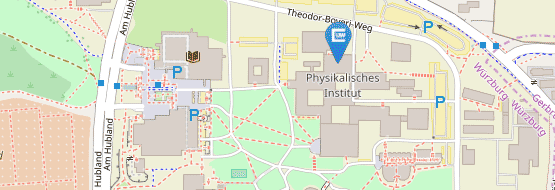Z03
Sustainable code development and optimization on modern su- percomputing architectures
Summary
The interplay of high level numerical algorithms with the use of modern supercomputing architectures is an enabling technology for numerical solid state research. Cunning and efficient algorithms that harness the power of modern compute architectures while exploiting the possibilities of the hardware that are part of a reproducible workflow are the road to success. They provide a solid basis on which research can thrive, assuming the availability of good software that puts this power into the hands of researchers. The overarching aim of this project is to provide guidance and support to achieve this ambitious goal and support researchers with the respective tools. It has many facets. It starts with algorithmic research that, for example, aims at generating tilings in curved spaces, formulate optimal splitting methods for imaginary and real time evolutions as well as optimal implementations of QR de- compositions on new accelerator devices such as FPGAs. Developing algorithms only makes sense if they are implemented in well documented libraries that can be shared between different research groups. During the past funding period we can boast a number of research software packages in which Z03 support was pivotal. The SFB 1170 enjoys being a supporting member of the FAIRmat NFDI consortium. In fact, one of the central aims of FAIRmat is to connect data with its generating software such that the data will become reproducable. We found in the Z03 project that the impor- tance of education for conveying the modern mind-set required for sustainable and reliable numerical research cannot be overestimated. All the above are issues that are shared by many PIs in the SFB 1170 and beyond. Pooling these issues into a central project has proven extremely beneficial.


